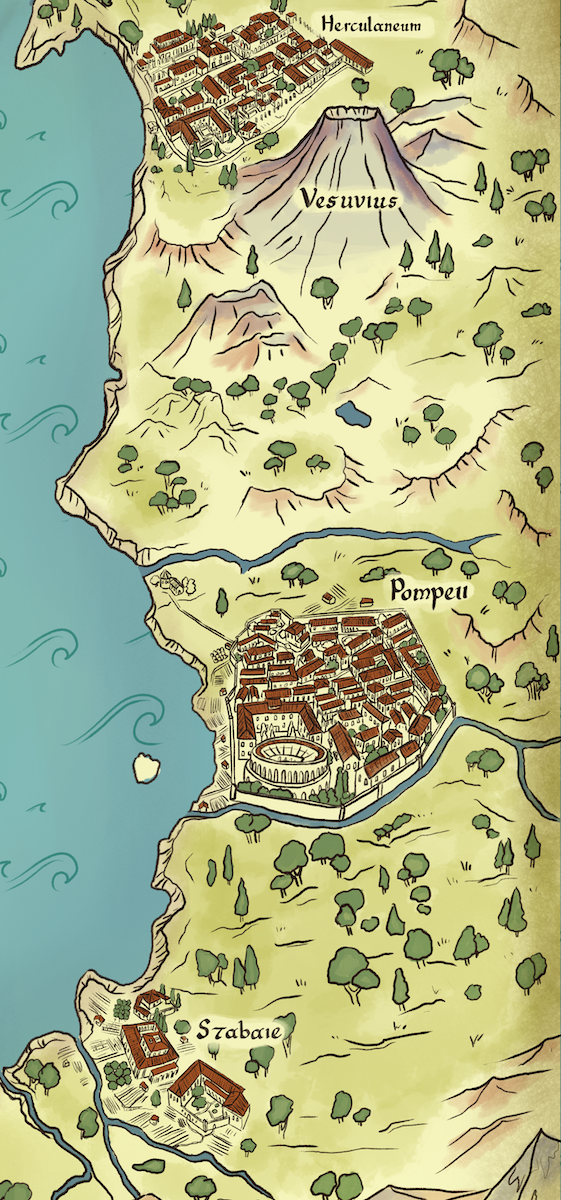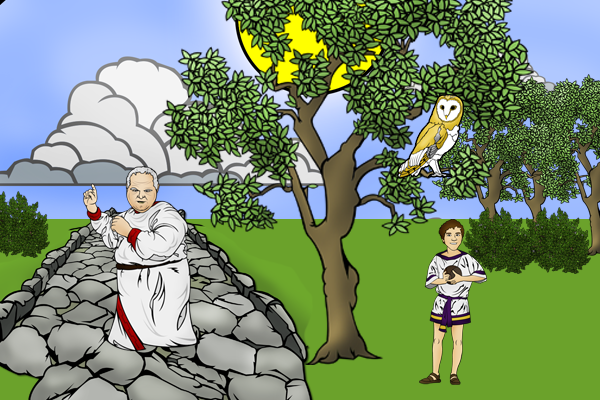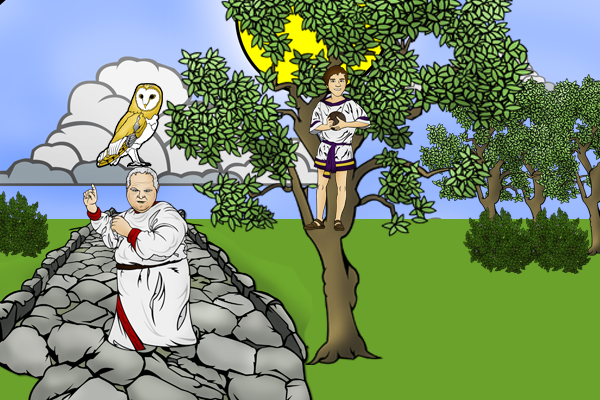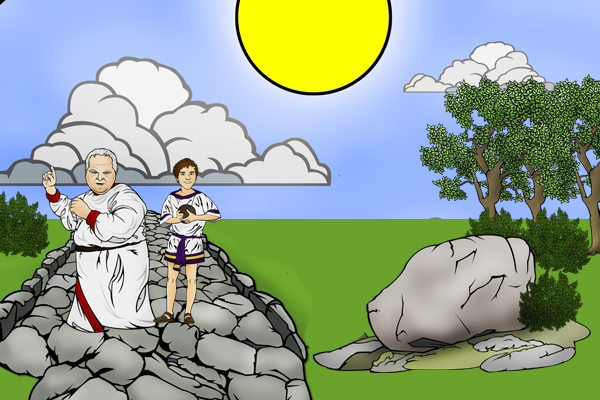CODEX 1.1
Operatives, welcome to Operation LAPIS. Please make your selection from the above CODEX menu options for Episode 1.1
How to use the CODEX:
The KEY-TEXT is a selected passage that should assist operatives in the immersion. These KEY-TEXTS often provide additional, and relevant, information about the current situation. The KEY-TEXT also provides an opportunity to gain additional practice reading Latin.
The GRAMMATICA gives explanations on how the Latin works in comparison to English. When beginning a new episode, each operative should first visit the GRAMMATICA section in order to understand the new concepts which are introduced.
The VERBA toolset gives glosses (meanings) for the Latin you encounter in your TSTT-insertions. When encountering new or unfamiliar words in the TSTT-insertions, all operatives should first consult the VERBA section before utilizing additional resources.
The CULTURALIA section provides relevant cultural background information. After operatives have read the new TSTT-insertion, they should first consult the important information provided in the CULTURALIA before beginning a discussion with his or her teammates.
The ATTUNEMENT option provides access to the attunement challenges for the current episode. These challenges are designed to help you, as an operative, gain additional skills in Latin and in Roman culture.
KEY-TEXT
Listen to the audio feed from TSTT Mission Control as you read, operatives.
via prope Pompēiōs
tua persōna est in viā. via est prope Pompēiōs. Rōma est prope Pompēiōs. Rōma est in Ītaliā. Rōma est urbs māgna in Ītaliā. Ītalia est prope Graeciam. Athēnae sunt in Graeciā. Sparta est in Graeciā. Rōma nōn est in Graeciā. Mōns Vesuvius quoque est prope Pompēiōs. Mōns Vesuvius est volcānus māgnus.
puer est Rōmānus. puer est bonus. Marcus quoque est Rōmānus. Marcus est senex malus. puer in Pompēiīs habitat. Marcus quoque in Pompēiīs habitat. Tiberius in arbore latet. arbor est in agrō prope viam. Marcus puerum quaerit. Marcus puerum in arbore nōn videt.
Visual Walkthrough
Informational Text A
Geographia

Rōma est urbs māgna in Ītaliā. Ītalia est in Eurōpā. Ītalia est prope Graeciam. Graecia quoque est in Eurōpā. in Graeciā sunt urbēs māgnae: Athēnae et Sparta. Rōma nōn est in Graeciā.
Rōma est in Ītaliā. Rōma quoque est urbs māgna. Ītalia est iūxtā Mare Mediterrāneum.
oppidum nōmine Pompēiī est prope Rōmam. in Ītaliā, prope Pompēiōs, sunt duo alia oppida: Herculāneum et Stabiae.
inter Herculāneum et Stabiās est Mōns Vesuvius. Mōns Vesuvius quoque est prope Pompēiōs. Vesuvius est mōns altus. Mōns Vesuvius est volcānus māgnus!
Mōns Vesuvius et Pompēiī et Stabiae et Herculāneum sunt prope Mare Mediterrāneum.
Vasingtōnium est urbs māgna in Americā. in Americā sunt multae urbēs māgnae: Novī Eborācī, Bostōniae, Philadelphiae, et alia.
America est prope Canadam. in Canadā quoque sunt multae urbēs māgnae. America et Canada sunt inter Ōceanum Ātlanticum et Pācificum.
Informational Text B
Tria Nomina
Rōmānī virī tria nōmina habent.

prīmum nōmen est praenōmen. Marcus est ūnum praenōmen. Tiberius est aliud praenōmen. Rōmānī multa praenōmina nōn habent.
alia praenōmina sunt:
| Appius | Gaius | Manius | Sextus |
| Aulus | Gnaeus | Publius | Septimus |
| Decimus | Lucius | Quintus | Titus |
fēminae praenōnima nōn habent.

secundum nōmen est gēns. gēns Rōmāna est familia māxima.
fēminae saepe nōmen patris habent. Marcus Tullius Cicero fīliam habet. eī nōmen est Tullia.

tertium nōmen est cognōmen. cognōmen indicat familiam minorem.
Marcus Tullius cognōmen “Cicero” habet. frāter Marcī, Quīntus Tullius, quoque cognōmen “Cicero” habet.
nōnnullae fēminae cognōmina habent.
Marcus Tullius Cicerō ūnam fīliam habet. eī nōmen est Tullia.
Gaius Laelius Sapiēns duās fīliās habet. nōmina sunt Laelia Maior et Laelia Minor.
Marcus Livius Drūsus ūnam fīliam habet. eī nōmen est Livia Drūsilla.
GRAMMATICA
Operative, you may have noticed that words in the Latin language change their endings while still referring to the same concept.
For example, when malīgnus referred to the malus, it ended in -us, but when it referred to his vōx, it ended in -a . You may wish to refer back to the TSTT prompt to confirm this difference.
Also, when the arbor was next to est, it didn’t have the extra -e it picked up when it came after in. You may wish to refer back to the TSTT prompt to see this difference in action.
In order to reach mission objectives in Operation LAPIS, you will be required to gain in your reading skills by learning to recognize the differences in the endings of Latin words, and what they mean.
As the operation continues, the GRAMMATICA tool will contain more and more detailed information about Latin endings. For now, operative, it is enough that you recognize them, and begin to be aware of their importance.
-t
Operative, please note carefully that most of the actions you have seen (dēsilit: “jumps down”; rogat: “asks,” est: “is”) are expressed in Latin words ending in -t.
(Note also that “jumps,” “asks,” and “is” all end in -s. Changes in ending happen in English, too–but we rarely notice them.)
You may already be familiar with the idea of “persons” when we talk about actions (by actions, we mean the kind of word we call “verbs”). We use the first person when we say “I jump” or “we jump”; we use the second person when we say “you jump”; and we use the third person when we say “she jumps” or “he jumps” or “it jumps” or “they jump.”
The Latin verbs we have seen so far, as you doubtless have already guessed, are in the third person.
VERBA
| arbor | tree | noun |
| cogitat | she/he thinks | verb |
| est | she/he is | verb |
| habitat | she/he lives | verb |
| in | in, on, into, onto | preposition |
| malus | bad (man) | adjective |
| nōmen | name | noun |
| puer | boy | noun |
| rīdet | she/he laughs | verb |
| vōx | voice | noun |
CULTURALIA
Operatives, this section will become increasingly helpful throughout the Operation. Mission Control has a direct feed to all events inside of the TSTT and they will provide ancillary material that should aid you in your particular immersion sequence.
For this episode, it looks like this stranger that you met is awful curious about your name. We don't necessarily advise you to give him your Recentius' real name, so feel free to chose any name that might be plausable given the circumstances. You should look for helpful links in this section of each episode's CODEX, like the following on Roman naming conventions. Operatives are advised to pay careful attention between male and female conventions. Other links which may be helpful are:
- List of Roman Praenomina
- List of Roman Gentes
- List of Roman Cognomina
- Roman Naming Conventions for Women
We also suggest that all operatives review a standard Roman greeting in hopes they are more convincing to character inside of the TSTT. Here in this first episode, the malus asked you, "quid tibi nōmen est?" which literally translates to "What is the name to you?" We would more naturally understand that as "What is your name?" An appropriate reply to that question only needs a slight change. You can substitute mihi for tibi and the resulting phrase would be "mihi nōmen est..." or "My name is..." and then supply your name.
For more information on Roman names, feel free to watch this short video courtesy of latintutorial.com:
ATTUNEMENT
1.1.a
Directions: Select the image that best represents each sentence below. If you are copying and pasting the attunement into your Google Drive, it is advisable to not copy the pictures and only copy the sentences.
| A | B |
 |
 |
| C | D |
 |
 |
1. puer est in arbore. image:_____
2. senex in viā saltat. image:_____
3. bubō in sene stat. image:_____
4. puer est prope senem. image:_____
5. puer sub arbore stat. image:_____
6. senex in saxō saltat. image:_____
7. senex est prope puerum. image:_____
8. puer est in viā sed senex nōn est in viā. image:_____
9. saxum est in agrō. image:_____
10. arbor est in agrō et bubō est in arbore. image:_____
1.1.b
Directions: Based on the Key Text for 1.1, place each word under an appropriate column. You can use words more than once. The table does not need to be completely filled.
- Athēnae
- Marcus
- Mōns Vesuvius
- Sparta
- Rōma
- puer
- Pompēiī
- via
- persōna tua
- Tiberius
- senex
- arbor
| in Ītaliā | in Graeciā | urbs | persōna |
Write your own Latin sentence!
Directions: Choose words from different columns to create a sentence in Latin. Write at least five (5) Latin sentences. Then translate your sentences.
| I | II | III (optional) | IV |
| Rōma | in agrō | nōn | currit |
| urbs | prope viam | quoque | latet |
| volcānus | in viā | est | |
| puer | in arbore | habitat | |
| Tiberius | in Pompēiīs | stat | |
| arbor | in Ītaliā | ||
| Sparta | in Graeciā | ||
| senex | prope Pompēiōs |
2. estne Rōma in Graeciā?
3. quid est Mōns Vesuvius?
4. quid nōmen est malō?
5. quis est puer in arbore?
6. quid Marcus quaerit?
- quis est prope arborem?
- quid nōmen malō est?
- quid malus dēsīderat?
- quis est in arbore?
- est puer amīcus?
- quis habitat in Pompēiīs?
- quō puer currit?
